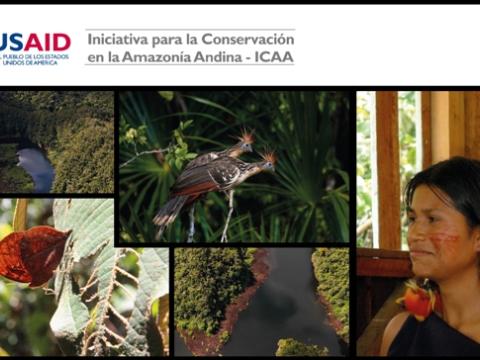Empowering Communities: Economics as a Catalyst in Environmental and Cultural Preservation
Empowering Communities: Economics as a Catalyst in Environmental and Cultural Preservation
By Rocío Rodríguez Granados
Colombia Director, Conservation Strategy Fund
Bogotá, Colombia

For true environmental preservation, it is crucial that our approach encompasses not only ecological concerns but also the socio-economic well-being of communities depending on the environment. Economics plays a pivotal role in this context, by providing evidence of environmentally-driven economic benefits to humans, and justifying more investment in environmental preservation. What’s more, an economic justification for nature can help protect the rights and heritage of indigenous and local populations, especially when integrated into initiatives like REDD+ (Reducing Emissions from Deforestation and Forest Degradation).
Conservation Strategy Fund (CSF), a global non-profit organization, champions this environmental economics approach. CSF leverages economic and financial tools to create innovative solutions for environmental challenges that incorporate protections for the many social and cultural values of nature. This approach transcends traditional approaches and focuses on empowering communities, ensuring equitable treatment, and securing their sustainable future while honoring the rich heritage of indigenous and local cultures.
The Economics of Ecosystems and Equity
Economics in environmental initiatives is not just a matter of analytics; it's a pathway to empowerment and sustainable living. Economics is the study of allocation of resources, and human decision-making and in the context of REDD+ projects, this social science can illustrate how forest conservation leads to enhanced community well-being. CSF can demonstrate that protecting forests secures not only the known benefits of environmental preservation such as carbon sequestration and climate crisis reduction, but the environment but also the livelihoods of those who depend on them. REDD+ projects, when economically integrated, can open sustainable job opportunities in forest management, eco-tourism, and other related sectors, thus fostering economic growth in harmony with the environment.
Moreover, economics can be instrumental in quantifying and valuing the ecosystem services provided by forests. This aspect further emphasizes to local communities that the tangible benefits of forest conservation extend well beyond just environmental impacts.
Economics also enables a thorough assessment of REDD+'s socio-economic impacts on local communities. By measuring changes in income, livelihoods, and resource access, it provides empirical evidence of the positive economic outcomes of these initiatives. This evidence strengthens the argument for active community participation and the safeguarding of their rights.
Additionally, environmental economics facilitates a more comprehensive cost-benefit analysis of REDD+ projects, as it will include social impacts. This approach helps decision-makers balance conservation costs against economic benefits, demonstrating that these initiatives can be both economically advantageous and protective of community rights and traditions.
Equitable Distribution and Fair Compensation
Economics as a study of resource allocation can play a vital role in ensuring equity within environmental initiatives. Economic data can help conservation organizations advocate for equitable compensation and inclusive community participation in REDD+ projects, so that all community members share in the benefits of these projects..
Economics also quantifies the impact of these initiatives on daily life, tracking improvements in income, resource access, and living standards. This quantification underscores the importance of protecting rights within these initiatives and provides a rationale for equitable resource distribution.
Furthermore, economics stresses the importance of land rights in these projects, empowering communities with economic agency. This empowerment enables communities to capitalize on environmental initiatives while preserving their cultural heritage.
Sustainability and Balance
Economics offers a blueprint for sustainable development, aligning economic growth with cultural preservation. An economics approach allows us to value benefits that live outside of the traditional “market” of goods and services, such as cultural knowledge preservation, or access to fresh water. This approach helps us value and defend cultural wealth as a foundation for economic prosperity. CSF stands as a vital partner in the global effort to more accurately value and defend the environment. CSF advocates for a future where environmental integrity and community prosperity can not only coexist harmoniously but can strengthen one another.
- Log in to post comments
















